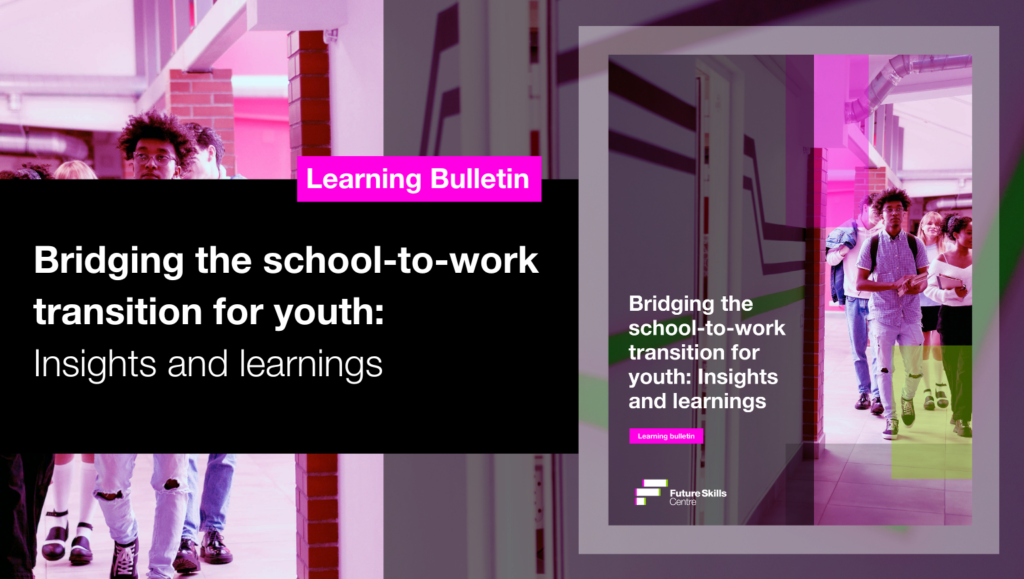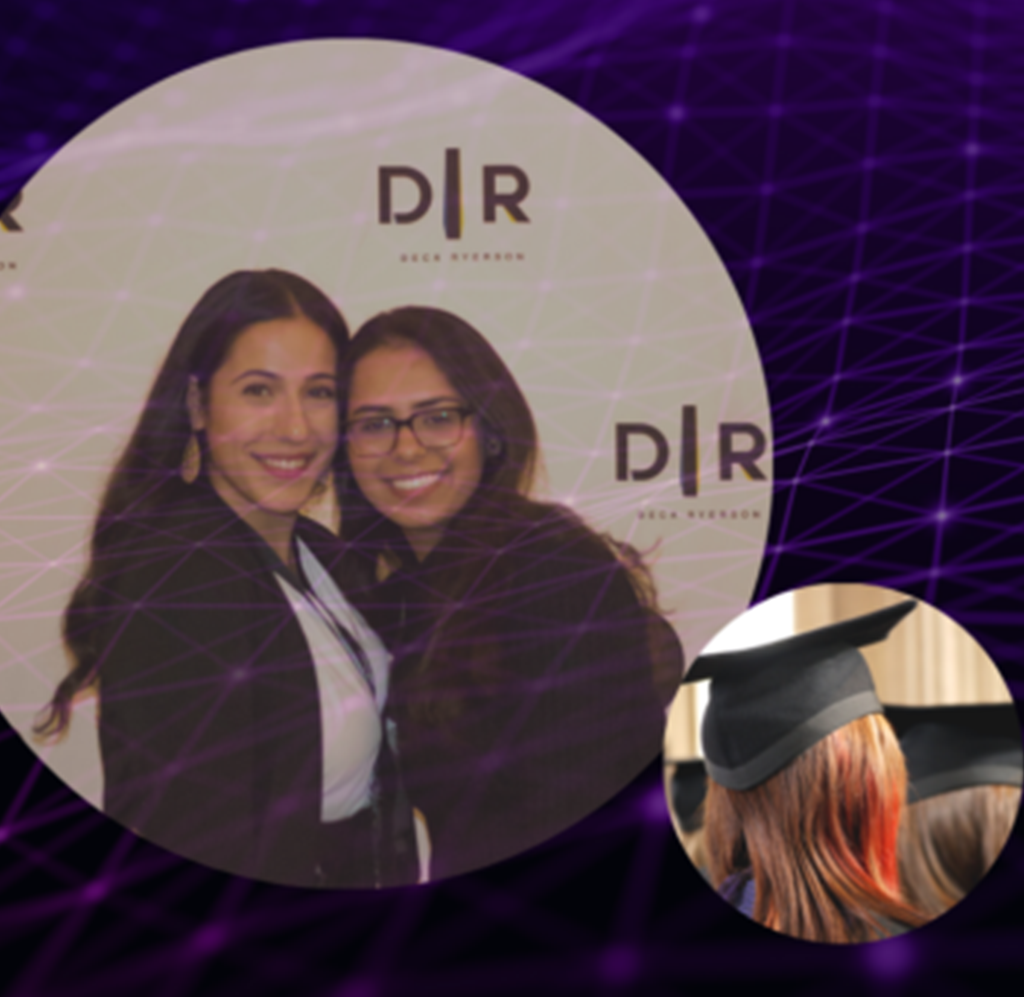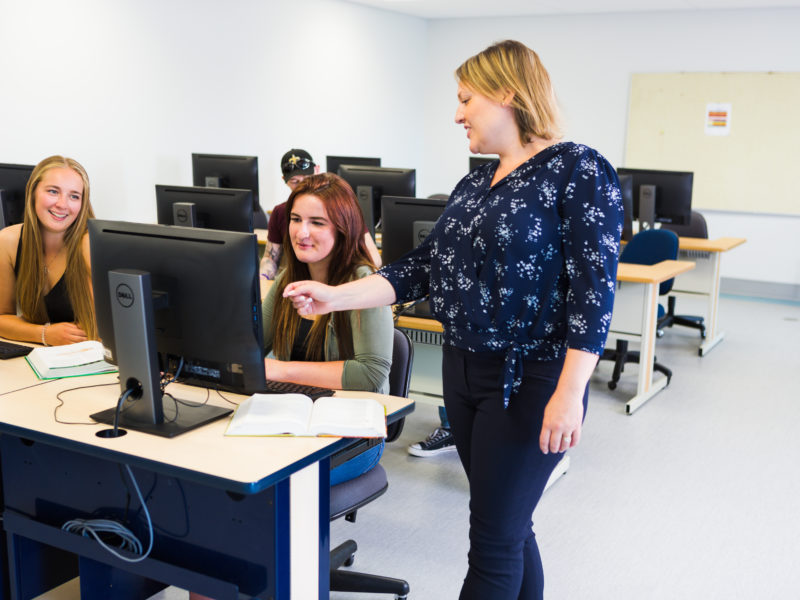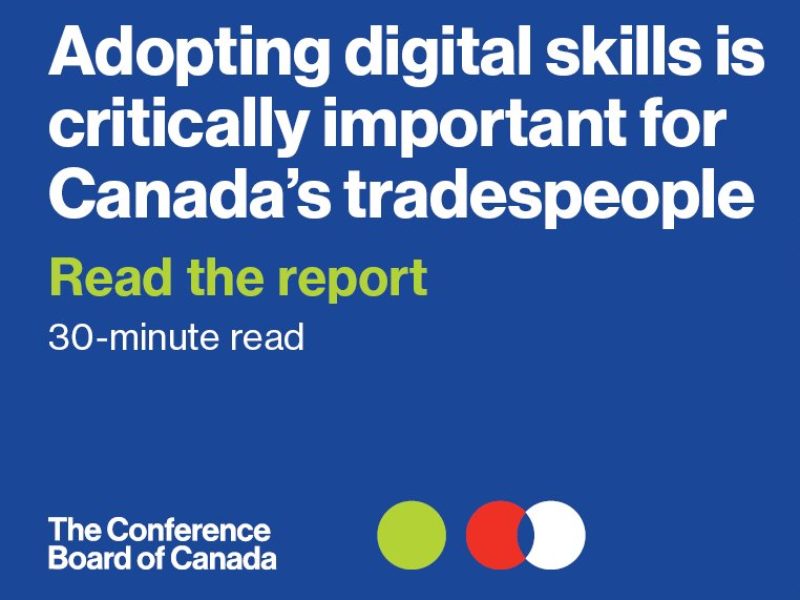Focus on youth and skills
Youth – those between the ages of 18 and 30 – represent the future of our country, yet many struggle with making smooth transitions from school into the workforce. Young people were also hit harder economically by the pandemic compared to other populations, and suffered historically steep increases in unemployment.
25%
of Canada’s population is made up of people born between 1996 and 2010. These young people are now entering the workforce.
(Source: Yesterday’s Gone)
Only 34%
of employers agreed that youth are prepared for the workplace, according to a 2015 global McKinsey survey of employers.
(Source: Government of Canada: 13 Ways to modernize youth employment in Canada )
About 5.9%
of Canada’s national wealth goes to education, a relatively high rate compared with other OECD countries for educational expenditure as a share of GDP.
(Source: OECD)
Canada’s young people are facing both challenges and opportunities as they strive to enter the workforce, gain skills or seek education.
On a positive note, Canada is near the top in terms of educational investments, as compared to similar OECD countries (measuring educational expenditure as a share of GDP). In addition today, 39% of young people in Canada are attaining more advanced degrees, such as bachelor’s, master’s or doctoral degrees, compared to 24% of older Canadians (aged 55 to 64). And the more education a young person attains, the more likely they are to get a job, earn more, and to enjoy a higher quality of work.
However, challenges persist for many young people around equitable access, participation and progression through education. While post-secondary graduates tend to fare better in the labour market, education does not mean a level playing field for all. Youth who identify as Indigenous and/or Black, have disabilities, did not complete post-secondary education, and recent post-secondary graduates have all faced particularly acute hurdles navigating pandemic-related disruptions to their education and employment. Disparities existed before COVID-19, and the pandemic exacerbated these inequities.
All young people are facing a difficult labour market – one that is increasingly precarious in terms of the job available, and shifting rapidly in terms of skill demands.
Joshua left home at 16 and spent about a year in youth shelters. In his late teens, he was referred to NPower Canada, a no-cost tech training program for youth.
This learning bulletin explores in greater depth the challenges and uncertainty many young adults experience while making the transition from school to work, focusing on what we’re learning about how to best support and provide opportunities to young people in their journeys.
Take a look at all our bulletins that gather research and early findings from our innovation projects to help navigate the future of work.












